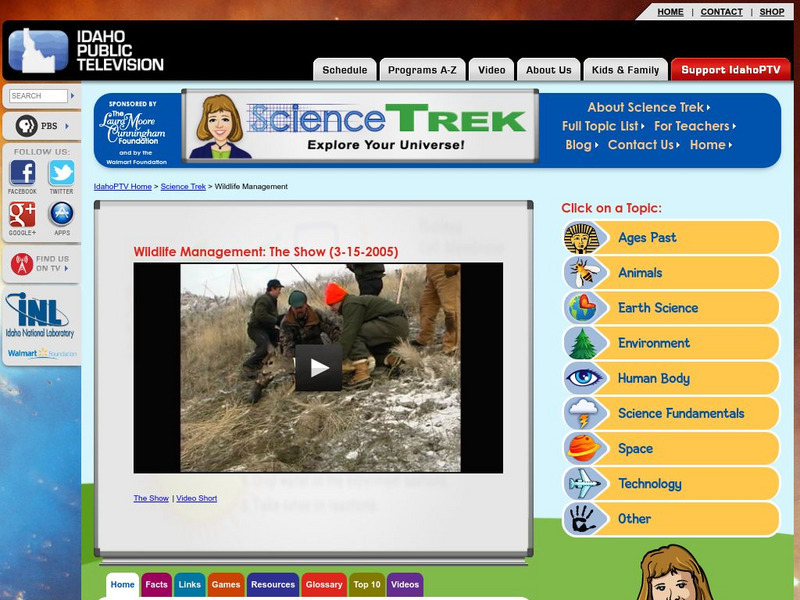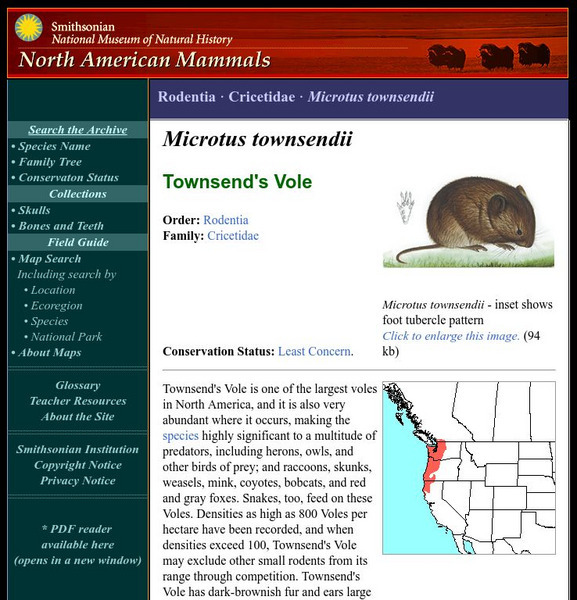Science Buddies
Science Buddies: Now You See It, Now You Don't! Test Your Peripheral Vision
The survival of our ancient ancestors depended on their ability to use peripheral vision to find prey and to avoid predators. Almost everything we do-from riding a bike, to dribbling a basketball, to reading a book-depends on peripheral...
San Diego Zoo Global
San Diego Zoo: Alligators & Crocodiles
This resource provides detailed facts about alligators and crocodils, including how to distinguish between a crocodile and an alligator, information on their eating habits, how a mama crocodile protects her young, and more. There are...
PBS
Idaho Ptv: Dialogue for Kids: Wildlife Management
A collection of facts and links for learning about wildlife management. The facts cover what wildlife management is, the job of a wildlife manager, biodiversity, predators and prey, land capacity, habitat, and endangered animals. Other...
Other
Bioinsight: Wolf Scats a Precious Tool for Biologists
Just from wolf scat, it's possible for biologists to know if a species occurs in the area, what the animals are eating, if they are healthy, if reproduction is occurring, if the scat is from a male or a female and even the minimum number...
PBS
Pbs Teachers:how Can I Hide in Namib?
Identify how certain species survive in the Namib Desert through color protection, and determine what techniques animals in Namib use to hide from predators and to wait for prey.
Smithsonian Institution
National Museum of Natural History: American Mammals: Townsend's Vole
Townsend's Vole is one of the largest voles in North America, and it is also very abundant where it occurs, making the species highly significant to a multitude of predators, including herons, owls, and other birds of prey; and raccoons,...
Other
International Wolf Center: Fun Wolf Facts
A concise site that features "Just the Facts" about wolves. Information such as average length, height, weight, length of life, etc. is shared in this site.
BBC
Bbc Schools: Living Things: Food Chains Quiz
How are animals and plants linked? What is the difference between a producer and consumer? How is a predator different from prey? Take this food chain quiz to find out the answers to these questions and more. Links allow you to convert...
Curated OER
Ar Kive: Swordfish (Xiphias Gladius)
A fast-swimming predator, the swordfish (Xiphias gladius) gets its name from its extremely long, flat, sword-like bill, which is used to impale or slash its prey. The swordfish, the only living member of the family Xiphiidae, has a long,...
Other popular searches
- Predator Prey Graph
- Predator Prey Relationships
- Predator Prey Game
- Predator Prey Parasite Host
- Predator Prey Population
- Predator and Prey Activities
- Predator Prey Cycles
- Predator and Prey Science
- Predator Prey Interactions
- Predator Prey Relationships
- Predator Prey Simulations
- Predator and Prey Balance






